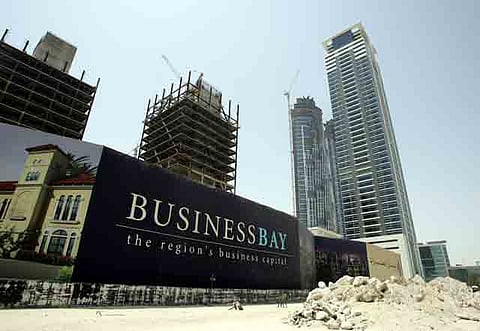EIB to help get projects moving
Emirates Islamic Bank to guarantee financing for certain property developments

Dubai: Emirates Islamic Bank (EIB) is the first Land Department-accredited bank to lend under Tayseer, the new initiative by the Dubai Government to guarantee financing for certain property developments, announced at the end of June.
EIB will have access to the Dubai government-backed guarantee scheme aiming to assure returns to participating financial institutions, protected by Dubai's Real Estate Regulatory Agency's (Rera) stress test of approved projects.
The Tayseer initiative has been welcomed by industry experts. They say the Land Department's move to increase confidence in the market via an official ‘it is OK to finance' rubber stamp on certain projects is a positive first step, but cancelled projects need equal attention.
"Tayseer is an important step for the Land Department to help oil the wheels to get developments moving.
"It isn't good for Dubai's image to have building sites standing idle," Matthew Green, head of research and consultancy, CB Richard Ellis, Middle East, told Gulf News.
"This initiative will inspire confidence and accelerate the Dubai real estate market's continuing maturity," said Marwan Bin Galita, Rera's CEO.
The move hopes to accelerate completion of 40 selected projects within Dubai Marina, Business Bay, and Jumeirah Lake Towers, which are at least 60 per cent completed. Green said Rera's releasing the list of the individual projects as soon as possible would be "conducive to allaying investors' fears."
"Rera is probably not ready yet but still in the due diligence stage. However, investors want to know when they can move in or expect a rental income from their property," he added.
According to the Land Department it has met with banks and developers to put in place a comprehensive legislative and procedural framework to support the operation of the Tayseer guarantee, but wasn't available for further clarification.
Sultan Bin Butti Bin Mejren, the Land Department's director-general, said other bank applications were under consideration for Tayseer and more projects would also be added over the next three years, each with a special focus from small to complex projects.
While Tayseer is a start to getting projects moving again, Green said investors need more clarity directly from developers on stalled projects. Others are equally calling for increased transparency.
Michael Lunjevich, partner at the UAE business law firm Hadef & Partners, pointed out continued uncertainty relating to projects that should have been cancelled a long time ago is unsettling for the market.
For one, it can distort the supply side predictions and lead analysts and investors to believe the number of properties in the pipeline is far bigger than it actually is, he told Gulf News.
"Keeping these projects in limbo is detrimental to people who have invested in them as some developers may still be trying to collect money off the buyers, or cancelling the purchase to retain monies paid, whilst knowing they are not proceeding," he said.



